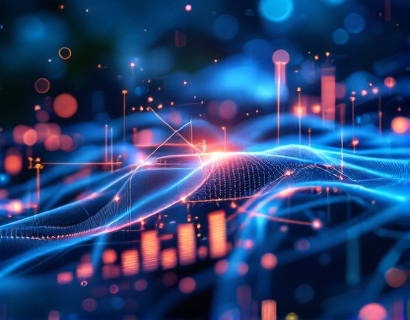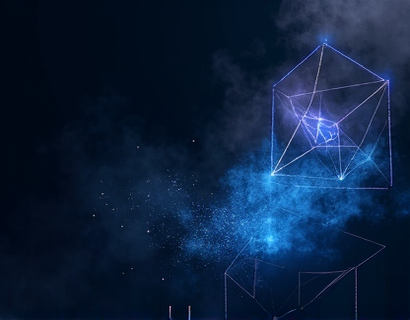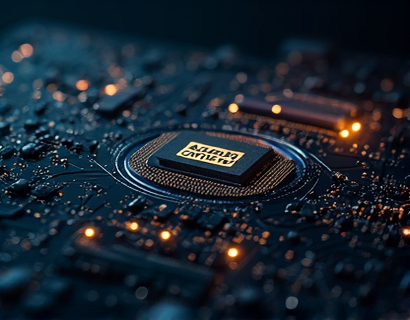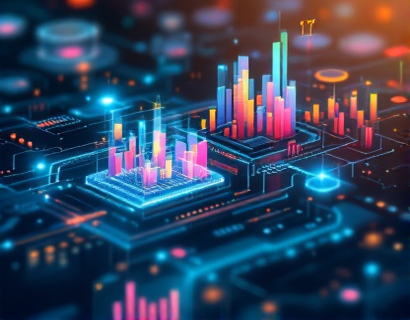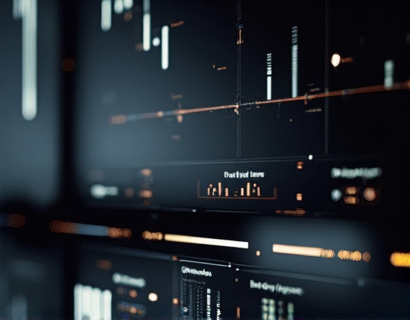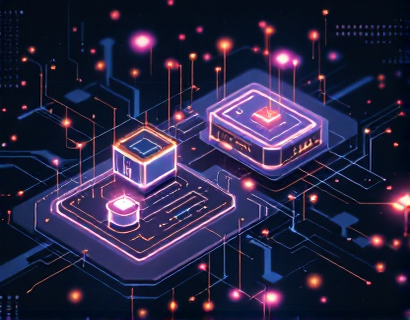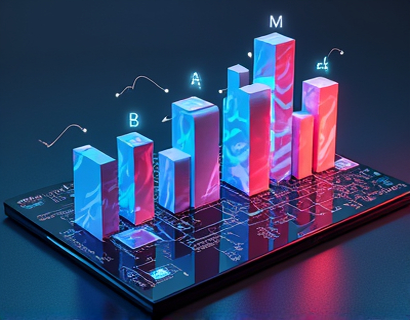Blockchain Oracle Management: Streamlining Data Integration and Smart Contract Execution for Decentralized Applications
In the rapidly evolving landscape of blockchain technology, the integration of reliable data sources and the execution of smart contracts are pivotal for the success of decentralized applications (dApps). Oracle management plays a crucial role in this process by facilitating the seamless flow of data between the blockchain and external sources. This article delves into the intricacies of blockchain oracle management, focusing on how advanced solutions can streamline data integration and enhance smart contract functionality, ultimately optimizing the performance of dApps.
Understanding Blockchain Oracles
Blockchain oracles serve as intermediaries that connect smart contracts with external data sources and services. They are essential for dApps that require real-time data to function effectively. Unlike traditional oracles which can be single points of failure, blockchain oracles are designed to be decentralized and trustless, ensuring that the data fed into smart contracts is accurate and tamper-proof.
The primary function of a blockchain oracle is to fetch data from off-chain sources and relay it to the blockchain, and vice versa. This bidirectional data flow enables smart contracts to make informed decisions based on real-world conditions. For instance, a betting dApp might use an oracle to fetch the current score of a sports match, ensuring that bets are settled fairly and transparently.
Challenges in Traditional Oracle Setups
Traditional oracle setups often face several challenges that can undermine the reliability and security of dApps. One major issue is the centralization of data sources, which can lead to single points of failure and potential manipulation. Additionally, the latency in data transmission and the cost of data retrieval can hinder the real-time performance of smart contracts.
Another significant challenge is the trust problem. Users and developers must trust the oracle to provide accurate and unbiased data. Any breach in this trust can result in significant financial losses and a loss of confidence in the dApp ecosystem. Furthermore, the complexity of integrating multiple data sources and ensuring their compatibility with blockchain protocols adds another layer of difficulty.
Advanced Oracle Management Solutions
To address these challenges, advanced oracle management solutions have emerged, offering robust and decentralized alternatives. These solutions leverage the power of blockchain technology to create a more secure, reliable, and efficient data integration process. By decentralizing the oracle network, these solutions eliminate the risk of single points of failure and reduce the potential for manipulation.
One key feature of advanced oracle management systems is their ability to aggregate data from multiple sources. This not only enhances the accuracy of the data but also provides a redundancy mechanism that increases the overall reliability of the system. For example, if one oracle fails to provide data, the system can fall back on other oracles, ensuring continuous operation of the smart contract.
Data Aggregation and Validation
Data aggregation involves collecting data from multiple oracles and combining it to form a comprehensive and accurate dataset. This process is crucial for applications that require high precision, such as financial dApps or supply chain management systems. Advanced oracle management platforms use sophisticated algorithms to validate and weigh the data from different sources, ensuring that the smart contract receives the most reliable information possible.
Validation mechanisms are also essential to prevent malicious data from entering the system. These mechanisms can include cryptographic proofs, reputation systems, and consensus algorithms. By ensuring that only valid and trustworthy data is used, these solutions enhance the security and integrity of the dApp.
Real-Time Data Streaming
Real-time data streaming is another critical aspect of advanced oracle management. Many dApps require up-to-the-minute data to function effectively, such as trading platforms that need the latest market prices or IoT applications that monitor sensor data. Advanced oracle solutions support real-time data streaming by maintaining persistent connections with data sources and efficiently pushing updates to the blockchain.
This real-time capability is achieved through the use of WebSockets, Server-Sent Events (SSE), and other modern web technologies that facilitate low-latency data transfer. By integrating these technologies, oracle management platforms can ensure that smart contracts have access to the most current data, enabling timely and accurate decision-making.
Enhancing Smart Contract Functionality
Advanced oracle management solutions not only improve data integration but also enhance the overall functionality of smart contracts. By providing reliable and timely data, these solutions enable smart contracts to execute complex logic and perform sophisticated operations.
For instance, in the context of decentralized finance (DeFi), smart contracts can use oracle data to automate lending and borrowing processes, execute trades, and manage risk. The accuracy and timeliness of the data directly impact the efficiency and fairness of these financial operations. Advanced oracle management ensures that smart contracts can trust the data they receive, leading to more robust and user-friendly dApps.
Interoperability and Cross-Chain Support
Interoperability between different blockchain networks is becoming increasingly important as the ecosystem grows more fragmented. Advanced oracle management solutions often include cross-chain capabilities, allowing smart contracts to access data and services from multiple blockchains seamlessly. This interoperability is crucial for building decentralized applications that operate across different ecosystems, such as bridging assets or facilitating multi-chain transactions.
Cross-chain oracles fetch data from one blockchain and relay it to another, ensuring that smart contracts on different chains can interact with the same external data sources. This capability not only enhances the functionality of dApps but also promotes a more unified and interconnected blockchain ecosystem.
Security Considerations
Security remains a top priority in the development of oracle management solutions. Given the critical role oracles play in feeding data to smart contracts, any vulnerability can have severe consequences. Advanced oracle management platforms employ a range of security measures to protect against potential threats.
One key security feature is the use of multi-signature wallets and decentralized trust models. These mechanisms require multiple parties to approve transactions, reducing the risk of unauthorized access or manipulation. Additionally, cryptographic techniques such as zero-knowledge proofs can be used to verify data without revealing sensitive information, maintaining privacy and security.
Regular audits and security assessments are also essential to identify and mitigate vulnerabilities. By conducting thorough security evaluations, developers can ensure that their oracle management solutions are robust and resilient against attacks. This proactive approach to security helps build trust among users and developers, fostering the widespread adoption of dApps.
Case Studies and Real-World Applications
To illustrate the practical benefits of advanced oracle management, let's consider a few real-world applications. One prominent example is the use of oracles in decentralized prediction markets. These platforms rely on accurate and timely data to settle bets and payouts. By integrating reliable oracles, prediction markets can operate fairly and transparently, attracting more users and increasing liquidity.
Another application is in the realm of decentralized identity management. Oracles can fetch user data from external identity providers, enabling dApps to verify identities and manage access control without compromising user privacy. This integration not only enhances security but also complies with regulatory requirements such as GDPR.
Supply Chain Management
In supply chain management, oracles play a vital role in tracking the movement of goods and ensuring transparency. By integrating oracles that fetch data from IoT devices and other sources, blockchain-based supply chain solutions can provide real-time visibility into the entire supply chain process. This transparency helps prevent fraud, reduces delays, and improves overall efficiency.
For example, a supply chain dApp can use oracles to track the temperature and location of perishable goods in transit. If the temperature exceeds a certain threshold, the smart contract can automatically trigger alerts and take corrective actions, ensuring the quality and safety of the products.
Future Trends and Innovations
The field of blockchain oracle management is rapidly evolving, with several emerging trends and innovations on the horizon. One such trend is the integration of machine learning and artificial intelligence to enhance data processing and analysis. By leveraging AI, oracle management platforms can predict data trends, detect anomalies, and improve the accuracy of the data fed into smart contracts.
Another area of innovation is the development of autonomous oracle networks that can self-heal and adapt to changing conditions. These networks can dynamically adjust the number and type of oracles based on the demand and reliability, ensuring optimal performance without manual intervention.
Decentralized Autonomous Organizations (DAOs)
Decentralized Autonomous Organizations (DAOs) are another exciting application of advanced oracle management. DAOs can use oracles to fetch governance data, execute voting mechanisms, and manage funds in a transparent and trustless manner. By integrating reliable oracles, DAOs can make data-driven decisions and automate complex governance processes, enhancing their efficiency and democratic nature.
For instance, a DAO managing a decentralized fund could use oracles to fetch market data and automatically rebalance the portfolio based on predefined strategies. This automation not only reduces the need for human intervention but also minimizes the risk of errors and biases.
Conclusion
Blockchain oracle management is a critical component in the development and success of decentralized applications. By addressing the challenges of data integration and smart contract execution, advanced oracle management solutions offer a pathway to more secure, reliable, and efficient dApps. These solutions not only enhance the functionality of smart contracts but also promote a more interconnected and trustless blockchain ecosystem.
As the technology continues to evolve, the potential applications of advanced oracle management will only grow, opening up new possibilities for developers and businesses. By embracing these innovations, the blockchain community can unlock the full potential of decentralized technologies and drive the next wave of digital transformation.







